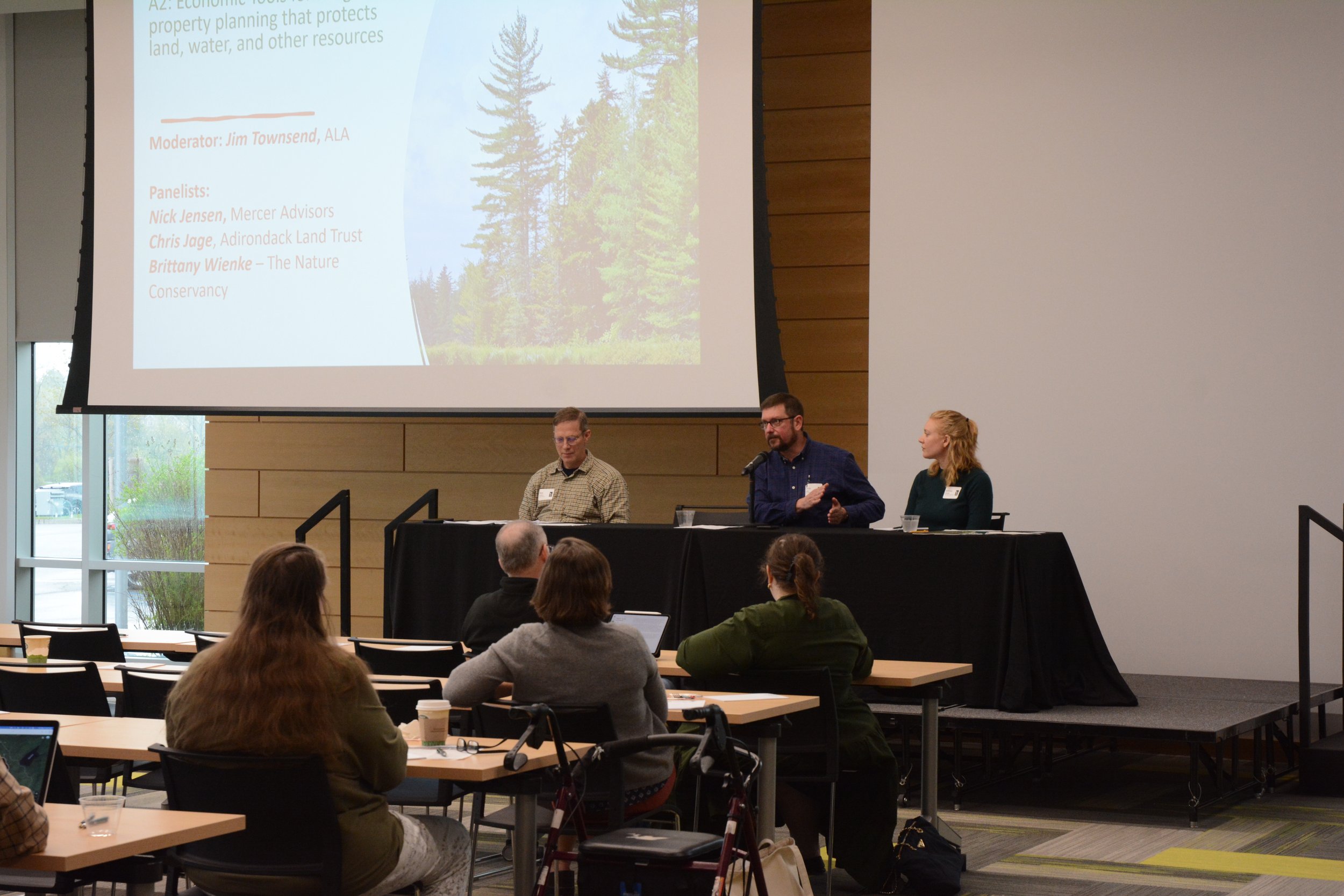Promoting Sustainability of Ownership and Stewardship of Private Lands in the Adirondacks Since 1990.
The Adirondack Landowners Association is focused on the unique responsibilities, challenges and opportunities of owning private land in a region that in both principle and practice is a park.
Learn more. Consider joining today.
Fellow landowners, forestry leaders, and conservation experts GATHERED for an immersive conference dedicated to empowering private forest stewards with the knowledge and tools needed to protect and enhance our precious woodland resources, now and for future generations. We learned a great deal, made new acquaintances, and opened the door to conversations to help shape the future of our lands for the next generation.














